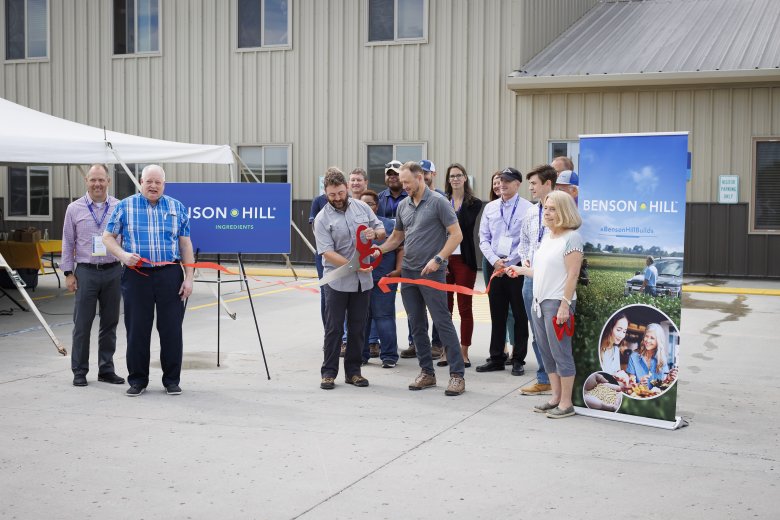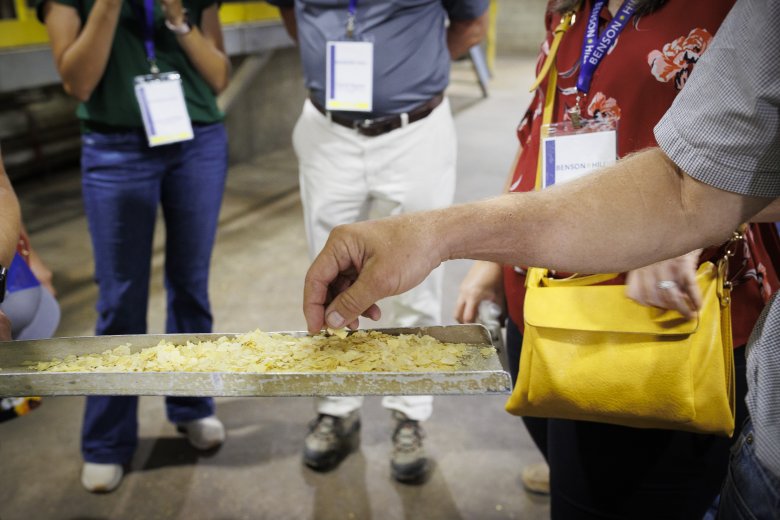Content ID
Benson Hill acquires soy crush facility in Iowa

Benson Hill has acquired a soy crush facility in Creston, Iowa, to bring its operations closer to farmers.
The technology company was launched around 10 years ago, focused on improving seed genetics with the goal of modernizing and evolving food production and distribution. Their mission doesn’t just end with changing food production, however. Benson Hill wants to change how consumers interact with its products.
Matt Crisp, CEO of Benson Hill, says the company’s fundamental motivation is linking the interests of farmers with consumers. As consumers have become more digitally inclined, they are now more informed of and interested in health and sustainability than ever before.
“We can create, by virtue of our business model, more traceability to offer the consumer or the food company a view of where their food is coming from,” says Crisp. “We can simultaneously create something that's significantly more sustainable, which is another big area of demand.”
The global pandemic and supply chain disruptions changed the way companies think about where they get their ingredients, according to Crisp. Companies like Kellogg’s, that has recently entered a partnership with Benson Hill, are now asking where its product is coming from.
“They say, ‘Is this grown in the United States?’” says Crisp. “For us to be able to say, yes — in fact, it's not only grown in the U.S., but I can take you down the street and have you meet the guy who grew it — that is a very, very powerful statement.”
Closer to farmers

The company announced it acquired ZFS Creston, a food grade white flake and soy flour manufacturing operation, in January for approximately $102 million.
“I'm just so proud that we're able to do [work] in a closed-loop, identity-preserved model here in Iowa with Iowa farmers who can, just down the street, produce something,” says Crisp. “And then out here, have that delivered to food companies directly.”
What Crisp means by “closed-loop” is collaboration between Benson Hill and its partner farmers, who are the “tip of the spear” enabling the company’s innovations. Delivering the seed to farmers is only the start of the process — throughout the growing season, Benson Hill keeps in touch with farmers to see how their fields are faring.
-
READ MORE: INFLATION, SUPPLY CHAIN CHALLENGES DROVE Q1 2022 GROWTH FOR CROP GENETICS COMPANY BENSON HILL
Reid Weiland, a sixth generation farmer from Garner, Iowa, is growing more than 3,000 acres of Benson Hill soybeans this year. He is part of the company’s food system innovators program where farmers were able to voice concerns and opportunities directly with the company.
“We had been seeking a way to add value to our operation — no one really preferred our corn or our soybeans over the neighbors,” says Weiland. “We wanted to do something more and be recognized for that. So we sought out that sort of solution and found Benson Hill.”
The start of Weiland’s partnership with Benson Hill last year was also the first time he had grown non-GMO soybean seeds. The first year, he grew Benson Hill seeds on about 15% to 20% of his field, and in 2022, he went to 100% Benson Hill seeds.
Weiland says there is a difference between growing GMO seeds and Benson Hill’s seeds, varying by variety, with some yield drag, that is compensated by Benson Hill. He says weed control is his number one challenge, which has taken some adjustment.
Soybean breeding

Benson Hill has invested its efforts into understanding the genetic potential of soybean plants, so it can breed for both quantity and quality — without the use of GMOs. This is achieved through its CropOS system, with proprietary phenotyping, predictive breeding, and environmental modeling algorithms, enabling more precision in the breeding process.
One of the breeding outcomes is a soybean with higher protein content, valuable in both the human food industry, as well as for aquaculture feed. Increasing protein content also allows Benson Hill to eliminate steps during processing, according to Crisp.
Typically, soybeans will go through a soy crush facility to separate oil from the meal to make soy protein concentrate (SPC). From there it would be moved to a SPC processing facility, concentrating a 50% protein content meal to a 65% to 70% commercially viable protein content concentrate, for example.
By breeding to increase protein content in the soybean, Benson Hill can achieve commercial levels of SPC without ever going to a processing facility.
Beyond protein content, Benson Hill is also breeding for other traits, like the ability to withstand drought, high temperatures, or disease. Using a crop accelerator, a controlled environment facility, Benson Hill is able to test seeds to see if they have the resilience needed to produce commercially viable quantities of crop.
For more information about Benson Hill, visit bensonhill.com.
Tip of the Day
When you mow in a remote area




